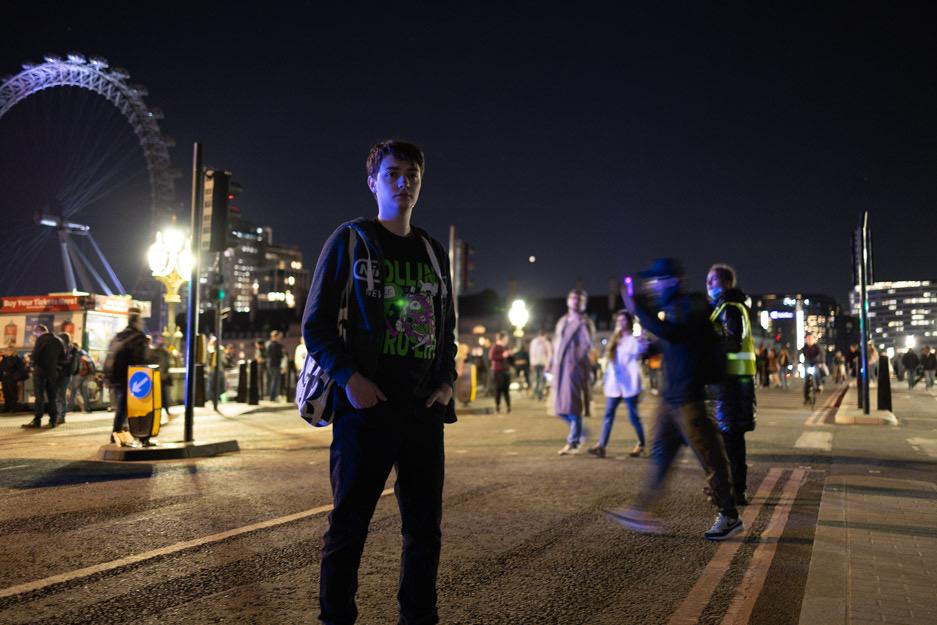Just like Stacia in Florence, I’m an NYU student studying abroad. The recent Twitter discourse was a reminder of how complicated culture shock can be.
NYU student Stacia Datskovska probably didn’t expect to become Twitter’s main character on Tuesday, but that’s exactly what happened after her less-than-positive review of her semester abroad in Florence went viral. Her article even got the attention of Amanda Knox (yes, THAT Amanda Knox), jokingly tweeting: Girl, what are you talking about? Studying abroad is awesome!
I have been studying at NYU London since August. Like many, I disagreed with Datskovska’s conclusions, but I can partly understand where she is coming from. Here is my perspective.
Time to dress up: A game of adaptability…
When we visit another country, studying abroad or otherwise, we are there to absorb the culture, learn, experience, and most importantly: adapt. The locals have no obligation to adjust to our presence, and (in most cases) they are welcoming. Of course, you could occasionally meet someone that could spoil your day. Being both NYU students, we know that “New York hospitality” can sometimes leave much to be desired. I’ve had my own encounters with locals that could have gone better. Despite those experiences, my first answer to culture shock is to adapt. In a way, staying abroad can be a little like needing to follow a dress code for an event: occasionally annoying, but with enough time and preparation, you’ll learn to make it your own.
A common thread in the criticisms aimed towards Datskovdka was that she was somehow emblematic of the “Ugly American” stereotype (cue the many comparisons to Portia in White Lotus). A stereotype that I never understood its exclusive application to Americans. In my own experience being part-Brazilian, the number of times I’ve had both Americans and Europeans speak about Brazil as either a tropical factory of genetic supermodels or a crime-infested hellscape— is more than I’d like to admit. But like many stereotypes, they can have a harmful impact. In the case of Brazil, the former has recently made the country a prime destination for manosphere sex tourists. The latter was a central component in media rhetoric leading up to the 2014 World Cup and 2016 Olympics. Both American and European channels engaged in this rhetoric. To use Datskovdka’s time in Florence as a monolith for American tourists isn’t accurate. Likewise, her interactions with Florentines shouldn’t speak for Italians either. Although we may have our own share of anecdotal stories about unpleasant tourists from “x” country, it’s far healthier to let go of those assumptions, especially since we tend to remember bad experiences more often than good ones.
During my time abroad, I was willing to let go of my American identity for a bit, immediately adopting the UK’s lexicon of “tube” instead of “metro” or “toilet” instead of “bathroom.” When the conversation turned to football, I’d joke to my friends to avoid using “the s-word” when referring to the beautiful game. I guess I was unconsciously trying to fit into the culture. Sure, partially letting go of the identity you built at home isn’t easy for everyone, and there’s nothing wrong with the occasional slip-up here or there; some may even find it charming!
Similar anxious thoughts, different answers…
Looking beyond the initial outrage at Datskovdka’s article were a few points that resonated with me. Yes, there is a lingering pressure among students studying abroad to travel as much as possible. And yes, being away can sometimes feel like missed opportunities to not be on the main campus preparing for post-grad life. The prevalence of social media as a platform to share those weekend trips or that new summer internship you’ve secured has only amplified the anxieties many college students face.
My second answer to those pressures: make the most to enjoy the exclusive opportunities your location offers you. Queen Elizabeth II passed away only a few weeks into my time in London. Being abroad allowed me, also a journalism student, to be in the epicenter of a momentous occasion for the country. Seeing the coverage unfold in front of my eyes taught me a lot about journalism. Nobody can guarantee that a historic event will happen in the country you’re staying in, but every country has its fair share of seasonal happenings.
I think the discrepancies in mine and Datskovdka’s answers to our similar feelings of homesickness and culture shock are rooted in how we approach them.
During my weekends alone, I would also go to markets, cook at home (I learned how to make a pretty mean bean on toast, no shame), and visit museums. I saw these opportunities as peaceful, quiet moments where I could appreciate the more subtle aspects of the culture at my own pace, with no outside pressure and no need to make anyone else happy. My approach to dealing with those lonely weekends did not make those anxieties disappear, but they served as a positive “answer” for them.
We might experience similar thoughts; how we deal with them matters. After all, nobody wants to be relegated to their dorm room, spending their weekend thinking, “I’m not making the most of my time abroad.” But there is no definitive way to experience studying abroad despite what social media or overheard conversations might make you believe.
If you were to ask my overall verdict on studying abroad, I’ve grown to love Europe probably more than New York City. But for many others, sometimes studying abroad might not be for them, and that’s completely ok.





